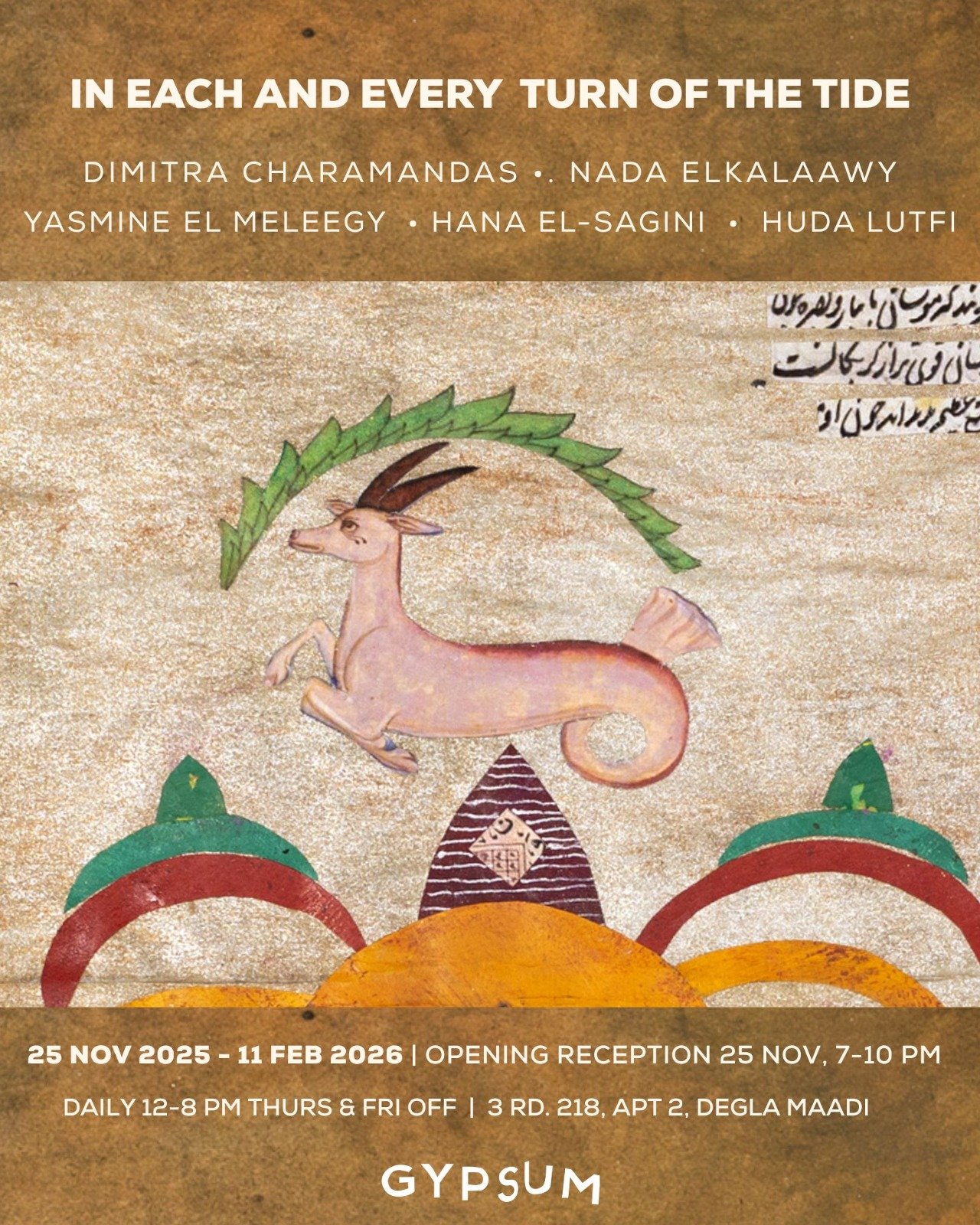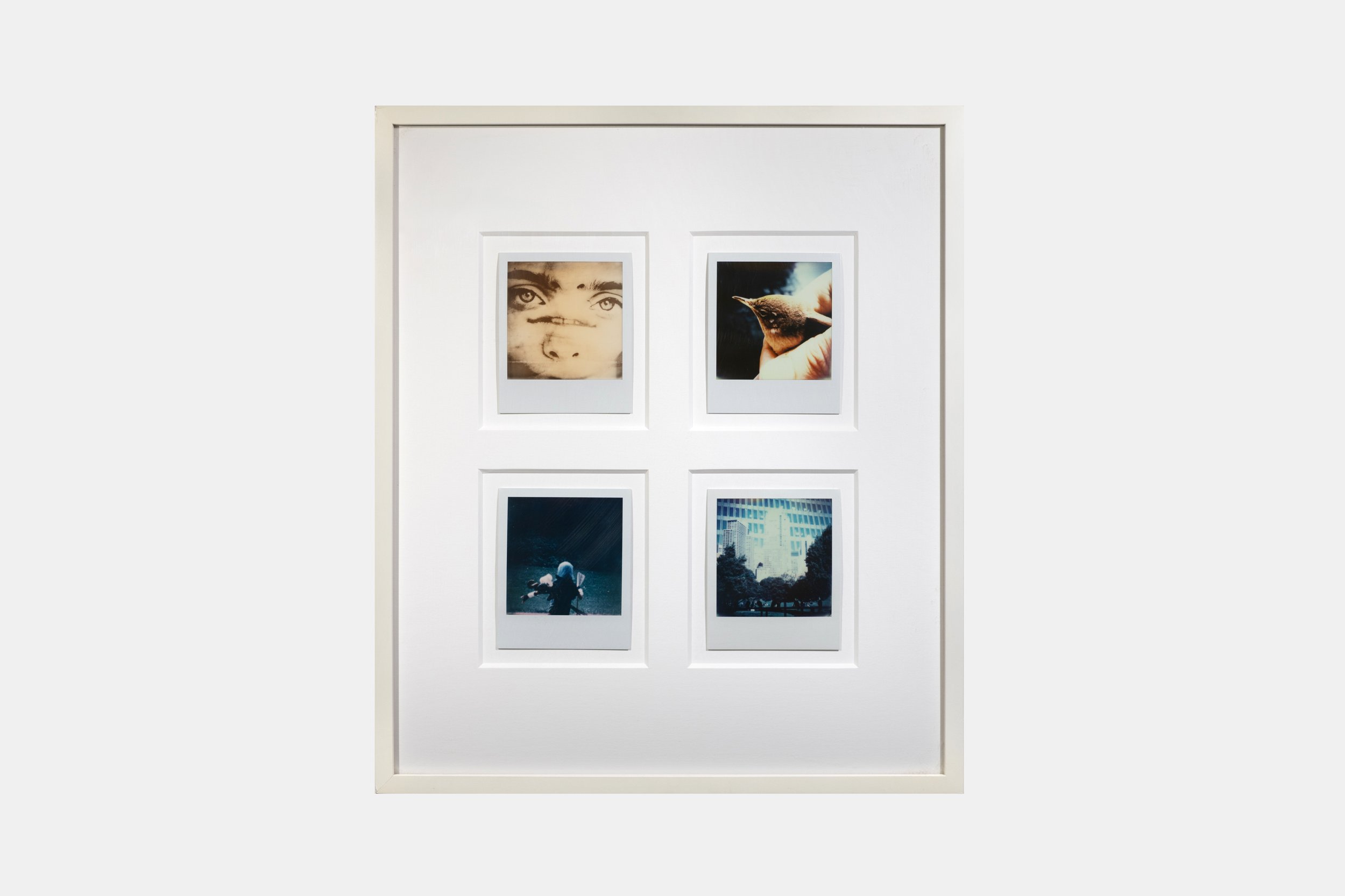IN EACH AND EVERY TURN OF THE TIDE
Group Show with Dimitra Charamandas • Nada Elkalaawy • Yasmine El Meleegy • Hana El-Sagini • Huda Lutfi
25 November 2025 - 11 February 2026
Like a North Star, resting still in the sky and essential for navigation, we continue to revisit objects and spaces that we hold dear. Though they may be idle at times, they remain as guides that ebb and flow: timeless, celestial, and ever present. In Each and Every Turn of the Tide, our current group show, gathers works that orbit this notion of return and repetition, where memory, material, and gesture converge.
Featuring work by Dimitra Charamandas, Nada Elkalaawy, Yasmine El Meleegy, Hana El-Sagini, and Huda Lutfi, the show spans painting, sculpture, collage, and mosaic. Whether through the mending of bodies and landscapes, the tending to spirituality, or holding onto keepsakes, each artist traces a path toward repair.
In their explorations of body and terrain, Hana El-Sagini and Dimitra Charamandas consider the intertwined systems of nature and the self, while Huda Lutfi and Yasmine El Meleegy engage with unvisited historical memory to explore forms of restoration that traverse time and geography. As with El Meleegy’s work, Elkalaawy’s paintings hold both past and present within them, echoing the gestures that came before.
Through casting, shattering, layering, and collage, making itself becomes a restorative act. Bridging past and present, the physical and the intangible, the distant and the dear, their work reimagines what it means to endure.
Read the artists’ biographies here.
VIEWING ROOM — ARTIST SPOTLIGHT ON BASIM MAGDY
Gypsum is also pleased to present an artist spotlight on Basim Magdy in our viewing room—showing a selection of works that utilize multiple analogue photographic processes. Created within the span of 11 years, the works in this presentation highlight the artist’s ongoing exploration of time, memory, and perception through experimental photographic processes.


